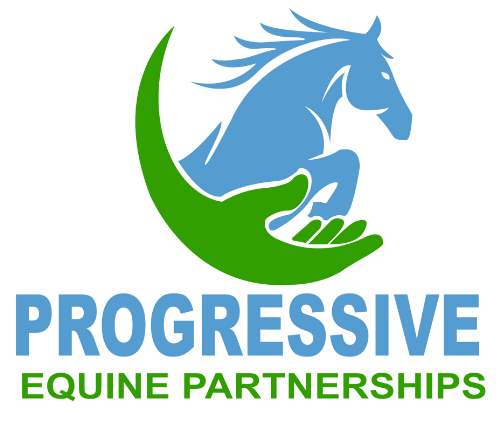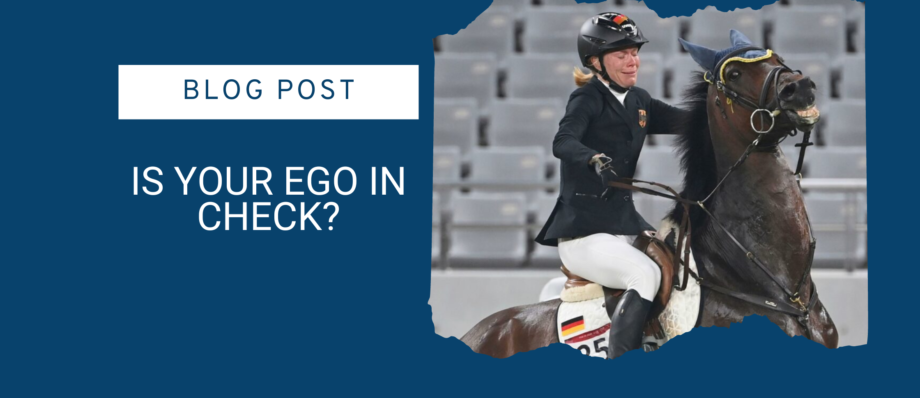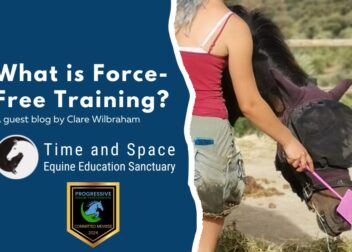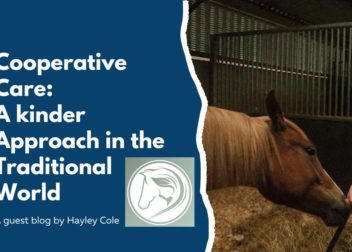Is your Ego in check?
We all have an ego. Many people think of someone with an ego as a person who is big headed and vein but that is an extreme version of the ego. The ego in all of us is our sense of self and who we are.
In the practice of mindful horsemanship we make an effort to watch our ego. We take note of our behaviour, reactions and the things that are driving us. After a while you will begin to get a sense of when the ego is taking over, for example the desire to win at any cost.

When the ego starts to drive you there is usually an underlying fear. If the ego is driving your need to win or be right it can create tension between you and the horse. The drive of the eco can really take over and you may find yourself in a power struggle. This can have a huge detrimental effect on your bond. The horse will lose trust in you and feel pressure from your ego and the emotions and actions that the ego is driving.
A noisy ego
A noisy ego driven by the fear of loosing or being wrong does whatever it takes to assert itself often to the point it inhibits the very goals it is most striving for. Quieting the ego so that it might listen to the horse and others as well as the self in an effort to approach life more humanely and compassionately will result in a more harmonious bond and the development of trust.
Let’s have a look at an example of this:
A person with a large ego driven by the fear of loosing may find them selves in a battle with a horse that is refusing to load into the trailer. The person driven by ego knows that the horse does not like to load but insists on taking him to a competition once a month. So every month they have a battle and using force, pain and punishment the horse goes into the trailer. They arrive at the competition stressed but the riders ego is satisfied that they won the battle of getting there. The horse is tense and does not enjoy the experience.
A person who has learnt to quieten the ego recognises that the horse is fearful of going in the trailer and decides not to go to any more competitions until the horse is happy loading. She widens her knowledge and understanding of the horses behaviours and learns new techniques that work with her horse to overcome his fear. She is aware that this takes time and she puts no pressure on the horse. The horse learns not to fear the trailer and they begin going to competitions again. They both arrive relaxed and with the pressure taken off they enjoy the day. The person feels they have acted humanely and with compassion, the horse learns to trust the rider and their bond is developing.
Understanding your ego
We are easily lead by a sense of pride, arrogance and the need to always feel right or justified. This version of ego becomes a guiding force and informs and motivates much of what we do with our horses. This expanded sense of self-importance and the need to protect the ego can take away our understanding of what is truly important. We are very quick to blame the horse and begin a power struggle to force a horse to perform in a certain way. Mindful horsemanship encourages us to look at ourselves in any given moment. Most people don’t do this and it is a skill that has to be developed, but the reward for developing this habit is huge.
The projection of the ego and the need to be right can cause us to lose sight of reality, wanting only results that produce the desired outcome regardless of how that is achieved. Mindfulness encourages us to refocus on the truth in any given moment without needing to win power struggles.
Developing kindness and compassion
Mindful horsemanship helps us understand that we are not out thoughts. Our thoughts are a projection of our ego and the ego likes to be right. Being aware of this can break the destructive thought cycle and help us to understand our true values acting with kindness and compassion and strengthening the bond between human and equine.
Mindful horsemanship brings a realistic acceptance into the picture, working with the idea that we do not always need to be right, win, be successful or feel superior. It allows us to explore different ways of doing things, developing a harmonious relationship. Observing the tendencies of the ego and acknowledging them can transform your equine relationship.
With a different mindset we can instinctively take time and space in each equine encounter to observe oneself and true motivation. We become observers of the ego and mind. By doing this emotions such as fear, pride, power etc are defused and identified to help us understand what is driving us, how we are reacting and assessing weather or not this sits inline with our true values and beliefs. We learn to act with integrity. This is the foundation of forming a harmonious bond with your equine partner.
For example:
A horse suddenly and continuously refuses to jump a fence that he has jumped many times before.
Ego that is not ‘in check’
Rider hits the horse and increases the pain and pressure tactics to achieve the desired result of getting the horse to jump. The horse tries to avoid this reaction and does jump to begin with but in time the issue develops and now the horse is reluctant to go near the jump. His behaviour escalates to the point that he will rear, buck and nap during any jumping exercises even when scolded with ships and spurs. He has become dangerous. The riders ego will not allow her to see past the ‘disobedience’ of the horse.
Ego in check
Rider acknowledges that her desire to get the horse over the jump is not as important to her as the horses wellbeing. She takes time to assess all possible reasons why the horse may not be cooperating and decides to get the vet to look at him. It is discovered that he has tenderness in his back and needs a new saddle fitting. After some treatment and a new saddle he starts to jump again. By keeping her ego in check, she has acted with integrity and can continue to develop a harmonious relationship with her horse.
Learn more about the practice of mindful horsemanship and our courses:



